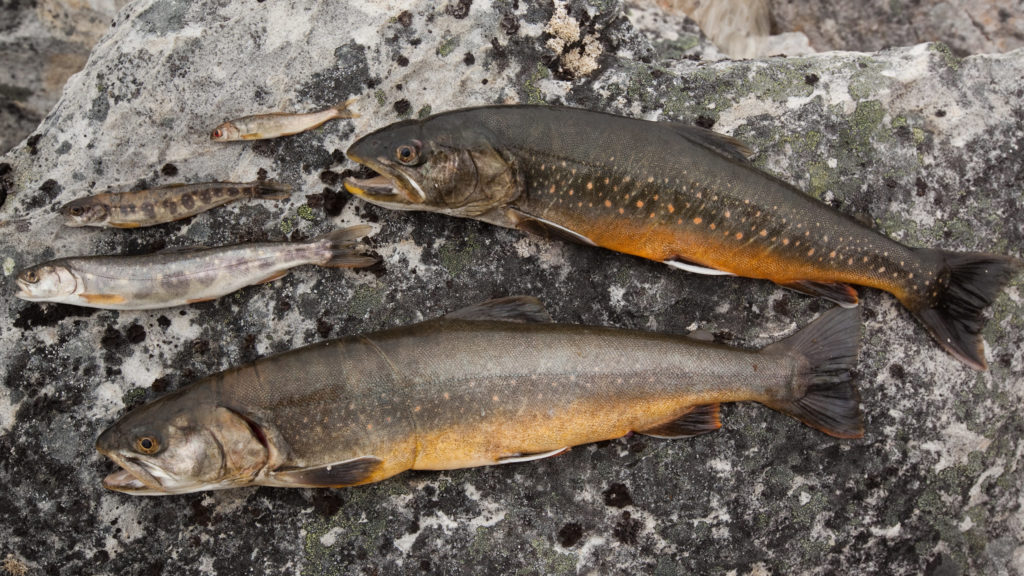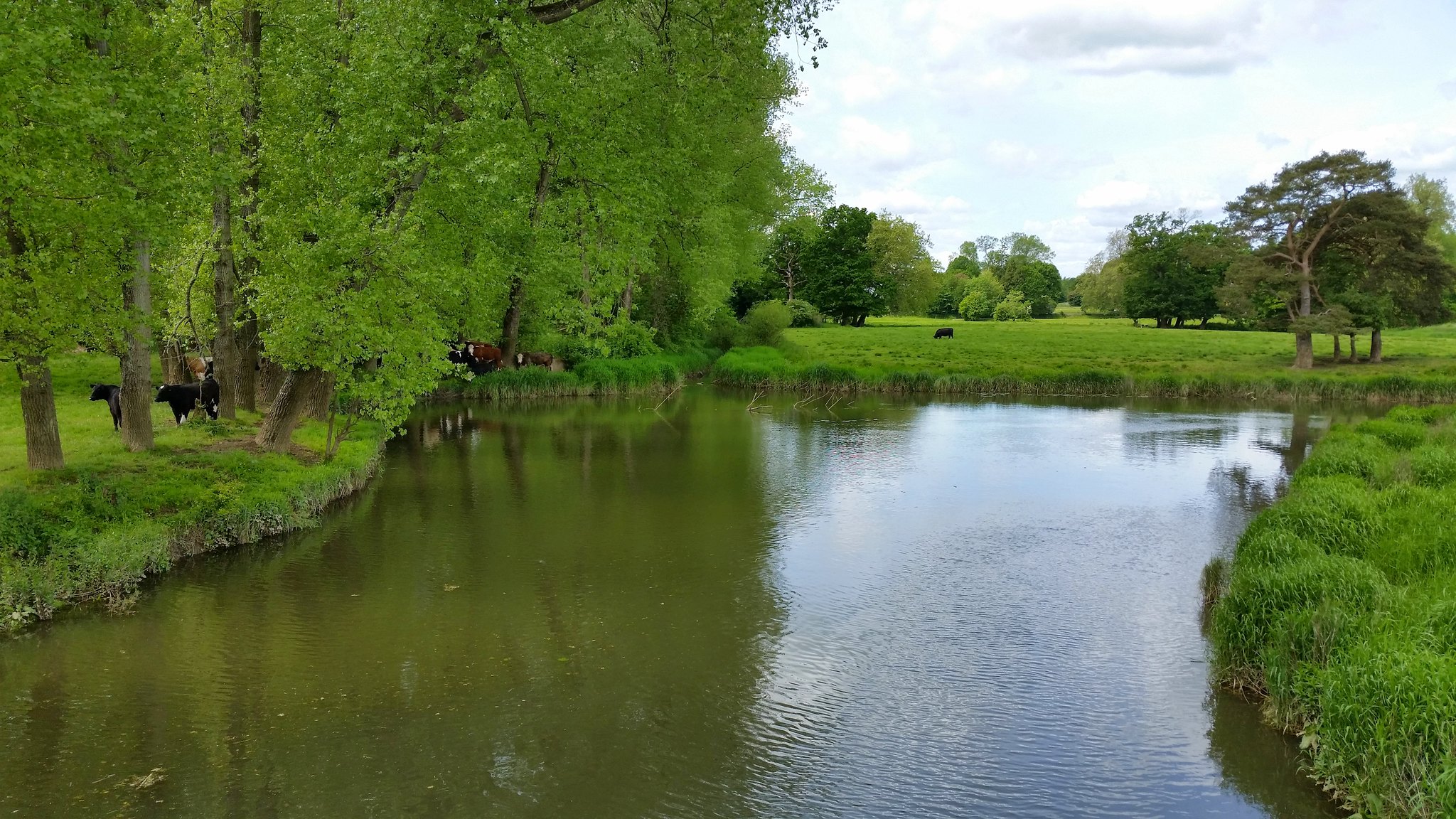The Guardian reports for many of us across the UK it has felt like another wet winter; yet again homes have flooded and politicians are under pressure to improve flood protection. Engineering our rivers and building defences might bring reassurance, but recent research shows that doing nothing is often more effective at reducing flooding.
Tag Archives: freshwater
Freshwater project gets Arctic charr out of hot water

The Times reports Arctic charr is a rare and ancient fish in Britain, a remarkable survivor of the last Ice Age, but in recent times it has been suffering warming waters and pollution. Now a project has brought the fish back from the brink of extinction at a lake in the Lake District.
The beautiful rose-tinted fish is closely related to salmon and trout. As the great ice sheets retreated about 12,000 years ago it colonised freshwaters in the British Isles and now lives in deep lakes in Scotland, north Wales, the Lake District and Ireland.
The fish needs waters below 8C for its eggs to survive but as waters have warmed in recent times populations have struggled to survive in Britain, apart from Shetland, and many of the native populations have become extinct.
Britain’s rivers should be returned to their ‘natural state’ to help save the endangered eel, says WWF
The Daily Telegraph reports Britain’s rivers should be returned to their ‘natural state’ with fewer man-made weirs and dams in order to help save the eel, the WWF says in a new report.
A third of freshwater fish globally are threatened with extinction due to a lack of care for our rivers, according to new findings from the animal welfare charity. WWF is calling all governments, including the UK’s, to back the implementation of a global Emergency Recovery Plan for freshwater biodiversity, as part of an ambitious agreement at the UN Convention on Biological Diversity conference later this year.
We know FNW members will feel this one close to their hearts as they fell in love with eels during the excellent Zoom talk by Kathy Hughes.
Flooding risk rises as UK’s wetlands lost
The Guardian reports this has been another wet winter of big downpours and flooding, but that should come as no surprise. Winters in the UK are turning increasingly wet and climate change predictions point to even wetter winters and record-breaking rainfalls in the future. Flooding from these rains is not inevitable, though. More than 5m homes in England are at risk of flooding, and yet one in 10 new homes are being built in high-risk flood areas. These are largely flood plains, typically flat, low-lying land around rivers that would naturally waterlog like a sponge, creating a mosaic of wetlands that help soak up the water that would flood elsewhere.
UK to support plans for new global treaty to ‘turn tide’ on plastic pollution
The Guardian reports Lord Goldsmith says Britain, the second biggest per capita producer of plastic waste, could play leading role in tackling crisis. Britain has thrown its weight behind a new global agreement to tackle the plastic pollution crisis, which Lord Goldsmith said would go “far beyond” existing international agreements.
No river in England is free from chemical pollution, government report finds
 The Daly Telegraph, BBC News, The Guardian, and The Financial Times report all of England’s rivers have failed their pollution quality tests, meaning the country’s waterways are some of the dirtiest in Europe. The report from Defra found that no river in England is free from chemical pollution. New sampling methods from the Environment Agency found that in all surface water sampled, persistent chemicals were present and being consumed or absorbed by aquatic life.
The Daly Telegraph, BBC News, The Guardian, and The Financial Times report all of England’s rivers have failed their pollution quality tests, meaning the country’s waterways are some of the dirtiest in Europe. The report from Defra found that no river in England is free from chemical pollution. New sampling methods from the Environment Agency found that in all surface water sampled, persistent chemicals were present and being consumed or absorbed by aquatic life.
River Wey photo by Malcolm Oakley under creative commons.
Natural solutions boosted to help prevent floods
BBC News, BBC Breakfast interview from 0733 and The Telegraph report a new approach to combating floods in England, backing natural solutions with government cash, has been unveiled. It includes funding for schemes such as creating sustainable drainage systems – and building hollows in the ground to catch flood water in heavy rain, before storing it to tackle summer droughts.
Critics say the schemes do not go far enough at a time of climate change. George Eustice, Environment minister live on BBC Breakfast says they want to develop more “nature based solutions, including tree-planting to prevent flooding.”
Killer pigmyweed from New Zealand putting Britain’s lakes at risk
Sky News reports pigmyweed was first sold in the UK as an ornamental plant for domestic ponds but it was banned after damaging rivers and lakes. The New Zealand pigmyweed has already wiped out several native plant species in the Lake District and there are fears that the area’s most pristine lakes are next.
The Telegraph and The Express report staycationers taking a holiday in the Lake District have been warned they could be spreading a killer weed from New Zealand, which is at risk of smothering the aquatic life in the famous lakes. Pigmyweed, once sold as a decorative plant for home ponds, is already responsible for several native plant species being wiped out in the Lake District, and there are fears that the area’s most beautiful lakes could be infested next… if people travel from an infested lake to a pristine one without taking care to wash any plant debris off their clothes, dogs, boats and bodies, they risk spreading the killer weed.
‘To save our fish, we must first find ways to unblock UK’s rivers,’ say scientists
The Guardian reports Swansea University scientists say the proliferation of weirs, dams and culverts is now creating a threat to wildlife.
Near the mouth of the River Afan in Port Talbot, south Wales, a pair of seagulls were to be seen last week pecking in a leisurely way at a dead salmon lying on a gravel bank. It was an unusual sight. Salmon are rarely found in the Afan these days.
The scene may have been unexpected, but it nevertheless illustrates a growing problem, say researchers – one that already affects rivers across Europe and could pose even greater threats to habitats and wildlife in future.
River Thames home to 138 seal pups, finds annual count
The Guardian reports it has been a highway, a sewer and was declared biologically dead in the 1950s but the River Thames is now a nursery for 138 baby seals, according to the first comprehensive count of pups.
Scientists from ZSL analysed photographs taken from a specially-chartered light aircraft to identify and count harbour seal pups, which rest on sandbanks and creeks around the Thames estuary, downstream from London, during the summer, shortly after they are born.
